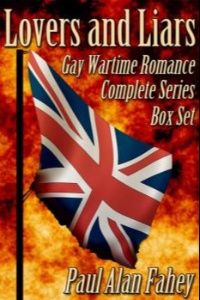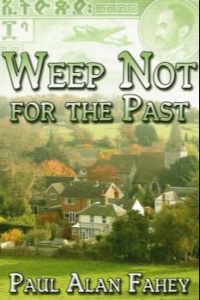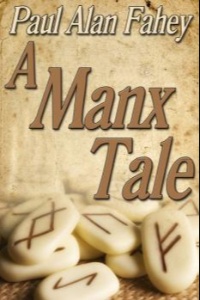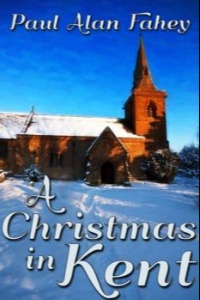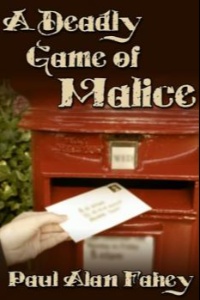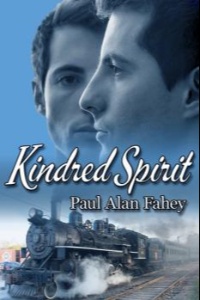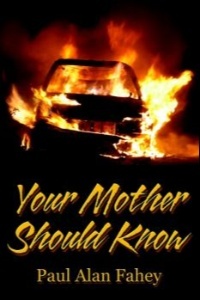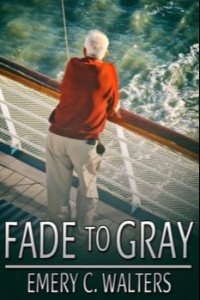After losing his lover in a tragic motorcar accident, Leslie Atwater goes about the motions but doesn’t really feel alive. Not without Edward. In a time where “one of us” was a euphemism for being gay, Leslie and Edward managed to live a quiet, private life together, but nothing prepares Leslie for a world without his partner.
During the day, Leslie works as a clerk in a modest bookshop in central London. By night, he’s an air raid warden in his district responsible for the safety of his “flock.” In an effort to feel closer to Edward, Leslie spends evenings in his flat reviewing Edward’s portfolio of sketches. Edward had worked as a freelance artist, and his depiction of Londoners surviving in the midst of World War II appeared daily in The Globe.
While reviewing the drawings, Leslie discovers irregularities in the sketches from Edward’s final assignment which he simply can’t explain. He begins to question what he was told about Edward’s death, and his investigation leads him down a tangled trail from the center of London to the coast of Great Britain.
Tension mounts and nothing is what it seems. In a showdown with German spies at a lighthouse overlooking the English Channel, bombs fall, people die, and Leslie gets more than he bargains for in his search for the truth behind his lover’s untimely death.
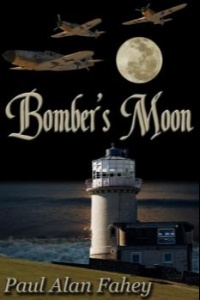
The whistling stopped. People waited, braced for an explosion. Maybe the bomb was a failure, or one with a delayed timing device that would detonate in daylight when children were playing in the London streets or on a Sunday morning as Londoners made their way in heavy traffic to their place of worship.
A sudden explosion rocked the Underground shelter. Lights dimmed, went out then came back on. Minutes later, the all-clear siren blared. Londoners, dazed, exhausted and wary, climbed the Underground stairs to the streets. Many returned to their homes, if they were still standing. Volunteers helped others, now homeless and in shock, to rescue centers. Entire neighborhoods burned through the night while Firemen fought to save them.
England was at war with Germany, and they called this period of death and destruction the Blitz. During the worst of it, London’s citizens endured a total of fifty-seven consecutive bombing raids. Everyone lived in a constant state of heightened awareness, a kind of an adrenaline fed excitement, not knowing if one’s next breath would be the last.
* * * *
Leslie Atwater’s days were lived in light, darkness, and shadow. Outwardly, he seemed normal, but within, he was empty and shattered. His core or essence was gone; it disappeared the night Edward died. He walked among the living, but he felt he was not a part of them. He saw no future for England, and especially no future for himself after the unending terror of the Blitz. It was all one unending nightmare.
They used to laugh together on their way to work -- Edward rushing to pick up his daily assignment for The Globe, and Leslie to The Cozy Corner, where he clerked for a small bookshop. Edward would point out a fellow who’d glanced their way or a couple of gents walking close together, chatting, and he’d say, “Wonder if they’re one of us?”
One of us. Leslie had met others like him and some even became acquaintances, but he never had intimate male friends. And no one had lit the spark like Edward had. One of us meant something then, to both of them, but now Edward rarely looked at other men. He had no reason to. He kept his head down when he passed them on the street or he looked the other way, pretending to be fascinated by a billboard on a passing bus, or some other street attraction. In September the Blitz came, and he and Edward in their life together snatched what moments they could in between the nightly blackouts, air raids and bombings. But by December Leslie’s status had changed markedly and irretrievably. He was no longer Edward’s loving companion. He was now on his own, and alone, and one of us meant very little to him.
* * * *
Leslie climbed the stairway to the flat he once shared with Edward. On the landing, he glanced at his reflection in the large beveled mirror. A thin, haggard-looking face stared back with blond hair combed straight back and bifocals, offsetting his deep blue eyes, making them seem more brilliant, larger than they actually were. “You’re just my type, Les,” Edward had said the night they met. “Sweet, unassuming and sexy as hell.” Leslie was equally drawn to Edward’s olive complexion, his hazel eyes and jet-black hair. As a couple, they were indeed a study in contrast and once again proved the time worn adage that opposites did attract.
He had learned over the past weeks -- were they months? -- to make his way in the dark with the aid of a small pocket torch. Lately, he felt as if he were being guided along through the darkness by some unseen hand. How many times had he and Edward come home tipsy from the pub and found the light burned out in the hallway? They’d had to hold onto each other for fear of banging into a table or knocking over a vase and waking the other tenants from a deep sleep. Leslie pointed the torchlight at the door lock, turned the key and heard the click of the latch. He was home.
Everything in Leslie’s world these days was defined by sounds; he was tuned in, constantly aware of what was happening around him—another gift from the Blitz. With his hand still on the doorknob, he paused and listened. Was that the rumble of a train in the Underground? An ambulance siren in the distance? Simple, everyday, taken for granted street sounds also became magnified. What kind of world was this where even birdsong could seem menacing?

